Vaccinations for South Africa
Vaccinations for South Africa

South Africa is a key hub for business, tourism and culture within the African continent. People with a British passport can visit the country for up to 90 days without a visa, which makes it a very popular destination for UK nationals.
When visiting South Africa from the UK, a few precautions should be taken to ensure you stay safe. Mosquito bite prevention and sun safety should be practised, and care should be taken when eating and drinking in areas with poor sanitation. It’s also important to get properly vaccinated. Make sure you visit our Vaccination Checker to receive your personalised travel health summary.
Before you leave for South Africa, you should make an appointment with your GP or a travel clinic to discuss your individual requirements. You should do this six to eight weeks before you fly to South Africa, as some of the common travel vaccines must be administered over the course of a month.
To find out which vaccines you may need for South Africa, read on. You can also use our powered by MASTA travel health.
Routine immunisations
Before you start planning your travel vaccinations for South Africa, you will need to make sure you have received all the routine immunisations administered in the UK (you will find a list here). If you aren’t sure whether you have received all your British vaccinations, you should speak to your GP.
What vaccines are needed for South Africa?
Once you are up to date on all your routine immunisations, you can begin to make a travel vaccination plan.
Depending on when you are planning to travel and the current vaccine recommendations your healthcare practitioner may advise you to receive the diphtheria, tetanus and typhoid vaccines. You might also consider getting vaccinated against hepatitis A, cholera, hepatitis B, rabies, and tuberculosis, depending upon where you will be travelling to and what kinds of activities you will be taking part in.
No yellow fever vaccination is required if you are travelling to South Africa from the UK, as South Africa is not a risk for this particular disease. However, you will need to be vaccinated and present your vaccination certificate if you are travelling into South Africa from a country within yellow fever risk zone.
Your travel health specialist may recommend any of the following vaccines after an individual risk assessment:
Hepatitis A
Hepatitis A is a viral infection that is spread in the faeces of an infected person. The relative risks of hepatitis A transmission will vary greatly in different parts of South Africa. Travellers to South Africa are most likely to contract hepatitis A by consuming contaminated food or drinking contaminated water. Hepatitis A can cause flu-like symptoms, jaundice and swelling around the liver. Most people recover within a few months, but in some cases the infection can cause serious complications.
You can receive the hepatitis A vaccine on its own as a single injection, or in combination with the vaccine for typhoid (as a single injection).
Diphtheria
Diphtheria is a bacterial infection that is spread in infected droplets from coughs and sneezes. It can cause a fever, sore throat and difficulty breathing and, left untreated, can result in serious complications. Diphtheria is more common in poor, overcrowded areas.
Most travellers will receive the diphtheria vaccine as part of the diphtheria, polio & tetanus booster (provided they are up to date with their routine immunisations). This is administered as one injection.
Tetanus
Tetanus is a bacterial infection which can get into the body through open wounds, causing painful muscle spasms and stiffness. Tetanus bacteria are found in soil and animal manure, which means you, may be at risk if you plan to work with animals or in the natural environment whilst in South Africa.
The tetanus booster is usually administered as part of the diphtheria, polio & tetanus booster (unless the person in question has never received the tetanus vaccine, in which case a full course is needed).
Typhoid
The typhoid vaccine is often given in combination with the hepatitis A vaccine, but it can also be administered as a solo vaccine. You can receive the vaccine as an injection or in the form of three capsules which are swallowed.
Typhoid is a bacterial infection spread in the faeces (and sometimes the urine) of infected people. You may be at risk of typhoid fever if you consume contaminated food and water whilst in South Africa.
Hepatitis A
Hepatitis A is a viral infection that is spread in the faeces of an infected person. The relative risks of hepatitis A transmission will vary greatly in different parts of South Africa. Travellers to South Africa are most likely to contract hepatitis A by consuming contaminated food or drinking contaminated water. Hepatitis A can cause flu-like symptoms, jaundice and swelling around the liver. Most people recover within a few months, but in some cases the infection can cause serious complications.
You can receive the hepatitis A vaccine on its own as a single injection, or in combination with the vaccine for typhoid (as a single injection).
Diphtheria
Diphtheria is a bacterial infection that is spread in infected droplets from coughs and sneezes. It can cause a fever, sore throat and difficulty breathing and, left untreated, can result in serious complications. Diphtheria is more common in poor, overcrowded areas.
Most travellers will receive the diphtheria vaccine as part of the diphtheria, polio & tetanus booster (provided they are up to date with their routine immunisations). This is administered as one injection.
Tetanus
Tetanus is a bacterial infection which can get into the body through open wounds, causing painful muscle spasms and stiffness. Tetanus bacteria are found in soil and animal manure, which means you, may be at risk if you plan to work with animals or in the natural environment whilst in South Africa.
The tetanus booster is usually administered as part of the diphtheria, polio & tetanus booster (unless the person in question has never received the tetanus vaccine, in which case a full course is needed).
Typhoid
The typhoid vaccine is often given in combination with the hepatitis A vaccine, but it can also be administered as a solo vaccine. You can receive the vaccine as an injection or in the form of three capsules which are swallowed.
Typhoid is a bacterial infection spread in the faeces (and sometimes the urine) of infected people. You may be at risk of typhoid fever if you consume contaminated food and water whilst in South Africa.
Other vaccinations for South Africa
The cholera vaccine is administered as a drink, not an injection, and is recommended for people who will be spending long periods of time in areas with poor sanitation and limited access to healthcare. Cholera is a bacterial infection spread in the faeces of an infected person; you can come into contact with cholera bacteria by consuming contaminated food or water.
The hepatitis B vaccine is administered as a course of three injections, and is recommended for people who may have unprotected sex, share needles or injecting equipment, get a tattoo or body piercing, or receive medical or dental treatment while travelling in South Africa. Hepatitis B is a viral infection affecting the liver that can lead to serious complications such as liver cancer. It is spread in the blood and bodily fluids of an infected person.
The rabies vaccine is administered as a course of three injections, and is recommended for people who may spend time with animals whilst in South Africa or be travelling remotely. Rabies is a serious viral infection that is spread through the scratches and bites of infected animals (usually dogs, but also monkeys, bats and cats). Rabies is nearly always fatal once the victim begins to display symptoms. To avoid infection, vaccination is strongly recommended. In the event that you get bitten or scratched, emergency treatment will still be needed but it is easier to administer.
The tuberculosis vaccine is administered as a single injection, and is recommended for health workers or children who will be spending long periods in South Africa. TB is a bacterial infection which is spread in infected droplets from coughs and sneezes. It’s a disease that attacks the lungs and leads to fatigue, weight loss, and blood to be coughed up.
Where can I get my South Africa vaccinations?
You will be able to receive some of your inoculations for South Africa for free on the NHS. Usually, the following vaccines/boosters will be available free from your GP surgery:
- Diphtheria, polio & tetanus booster
- Hepatitis A vaccine
- Typhoid vaccine
- OR, hepatitis A & typhoid vaccine
- Cholera vaccine (in some cases)
The hepatitis B, rabies and tuberculosis vaccines are not usually available on the NHS. Your GP may still be able to provide them, but at a cost.
You can also arrange to receive these injections through a service such as MASTA. The cost for these private vaccines varies.
Is yellow fever vaccine required for South Africa?
South Africa requires all travellers who are from an area where yellow fever is known to be present, to show officials a yellow fever vaccine certificate before entering the country. This certificate is formally known as an International Certificate of Vaccination or Prophylaxis and should be given to you after you receive your single injection. This certificate is valid for life and must be given to you at least 10 days before the start of your trip.
94 Countries That Don’t Require Covid Vaccinations For Travel

For travelers who have seen their free-movement rights denied due to the coronavirus pandemic, here is a list of countries that currently allow visitors to enter without a COVID-19 test or quarantine or with very few restrictions.
Also, find countries that have dropped all or most of their local Covid-19 restrictions.
Notice that governments can and will change entry restrictions depending on economic, political, and epidemiology factors. As of today, these are the ones welcoming back tourists, no questions asked.
Countries Without Covid Mandates (No Vaccine, No Test)
St. Maarten
The island will no longer require visitors to present proof of vaccination or a clean test result in order to access as of November 1.
Omar Ottley, the minister of tourism for St. Maarten, confirmed the information this week.
Visitors will only need to meet the “usual immigration and border control requirements to visit the island,” Ottley said.
After two and a half years of some of the strictest regulations in the world, Peru has now officially withdrawn all COVID-related restrictions, allowing for the return of regular tourism.
This means that after the notification that the country’s state of emergency has expired, people will once again be allowed to enter Peru without any restrictions.
Spain
Both EU and non-EU citizens will no longer need to present documentation of their vaccinations, recovery, or a COVID-19 test result in order to enter the country as of October 21, 2022.
The government website states: “All COVID-19 travel restrictions for travelers to Spain have been lifted. The rules that previously applied to travelers coming to Spain no longer apply.”
Ecuador
Ecuador removed the COVID-19 admission requirements on October 20, 2022. Prior to entering Ecuador, international tourists are no longer needed to provide COVID-19 vaccination cards or proof of a negative COVID-19 test.
Cambodia

The Covid 19 entry restrictions for incoming tourists will no longer be in effect, according to the Cambodian government. Previously, travelers were required to produce both a vaccination card and a health certificate proving that they had tested negative for Covid-19 within the previous 72 hours.
The decision was made in response to a request from Prime Minister Hun Sen, and it is effective right away.
“We have removed the requirement for all inbound travelers in all modes of transport: Land, waterways, and air. They no longer need to produce health certificates or show proof of full vaccination upon arrival,” said Minister of Health Mam Bun Heng in an October 3 announcement.
South Korea
South Korea ended testing on arrival for both vaccinated and unvaccinated travelers which means, no more entry restrictions remain as of October 1. This benefit applies to travelers whether vaccinated or not.
Lebanon
As of September 27, no Covid testing or vaccination documentation is necessary to enter Lebanon. The same goes for any need for quarantine.
Luxembourg
The Luxembourg Ministry of Foreign and European Affairs has stated that since October 1, all Covid-19 restrictions have been lifted.
Travelers are no longer subject to these entry restrictions, regardless of vaccination status. At the time of publication, Spain was the only country in Europe that imposes travel restrictions on foreign visitors.
Canada
Canada is the latest country to drop Covid-related travel restrictions. Canadian Government announced on Monday, September 26 that all the border entry rules along with mask mandates will be dropped as of October 1.
Barbados
Travelers will no longer be required to present proof of Covid-19 vaccination or to submit any testing in order to secure entrance regardless of vaccination status.
“This is the last step for us which reflects our position as fully open for business following the COVID-19 pandemic. We look forward to continuing to welcome visitors to our shores to experience all of the new and returning events slated for the rest of the year, and into early 2023.”
Thailand

From Oct. 1, authorities will no longer require travelers to present proof of vaccination or negative COVID-19 test results. People will also be able to attend crowded events without having to produce proof of vaccination. Officials announced that the nationwide state of emergency, which expired on September 30, will not be extended.
The current rules will be scrapped starting Oct. 1.
Panama
Panama will once again welcome tourists with no vaccine restrictions, no pre-departure tests, no post-arrival tests, and no quarantine once visitors arrive.
The country, in addition to loosening most visitor requirements, made a tiny step toward normalcy in July by eliminating the need that visitors wear face masks.
Turkey

Türkiye finally abolishes all health requirements for international tourists.
As confirmed by the Interior Ministry, international travelers no longer have to get tested or present other Covid-19 documents.
Previously, travelers who could not present a vaccination certificate when crossing the border were required to present a negative PCR test 72 hours before entry or a rapid antigen test within 48 hours of departure.
New Zealand
The government of New Zealand has announced that all COVID-19-related travel restrictions and testing requirements have been withdrawn.
Prime Minister Jacinda Ardern removed all vaccine restrictions, as well as the obligation to self-test after arrival, on September 13. Testing will now be “encouraged,” but not required.
“It’s time to safely turn the page on our COVID-19 management, and live without the extraordinary measures we have previously used,” Ardern said in a statement. “Today marks a milestone in our response. Finally, rather than feeling that COVID dictates what happens to us, our lives, and our futures, we take back control.”
Gabon
No entry Restrictions as of March 18, 2022
Georgia
Georgia is the latest country to abolish its Covid-related entry requirements.
The news was announced on June 15 by the Georgian Ministry of Foreign Affairs. Georgian authorities announced that international visitors entering the country will no longer be required to present proof of vaccination against Covid-19 or a negative Covid-19 PCR test.
This applies to both vaccinated and unvaccinated visitors.
Uzbekistan
Uzbekistan has joined a growing list of countries worldwide that lifted all COVID -19 entry requirements on June 8, 2022.
Kazakhstan
Kazakhstan is another country that will no longer require visitors to provide proof of vaccination or testing as of June 10, 2022.
Austria

Effective May 16, all travelers will be permitted restriction-free entry as the country has decided to lift all of its COVID-19 entry rules, authorities have announced.
“Travel to Austria is possible for touristic purposes. From May 16, proof of vaccination/recovery or a test is no longer needed,” the statement of the portal reads.
This news applies to all travelers regardless of their country of departure or origin.
France
This month, France lifted all of its Covid-19 travel restrictions and testing requirements for all travelers entering the country.
As of Aug. 1, 2022, it will no longer be necessary to present proof of Covid-19 recovery, vaccination or test results. It will also no longer be necessary to sign a certificate that you are free of Covid 19 symptoms.
For both vaccinated and unvaccinated, visitors no longer need to justify why they are traveling.
Malaysia
Malaysia has lifted all entry restrictions for overseas visitors, including testing and quarantine requirements.
As of August 1, visitors are allowed to enter Malaysia without filling out any Covid forms or getting tested, regardless of vaccination status.
There is still confusion about the removal of the travel form from the MySejahtera app, so travelers can still download the app. In light of recent headlines, vacationers are better off playing it safe.
Germany
According to German Health Minister Karl Lauterbach, certain travel restrictions imposed due to the pandemic will be suspended beginning June 1.
“Until the end of August, we will suspend the 3G rule on entry,” he told the Funke Mediengruppe newspaper.
Travelers must present a valid vaccination, test or recovery certificate to enter the country under the 3G regulation.
The rule will be repealed, at least for the summer season, as the frequency of Covid-19 infections in the nation has dropped dramatically.
Belize
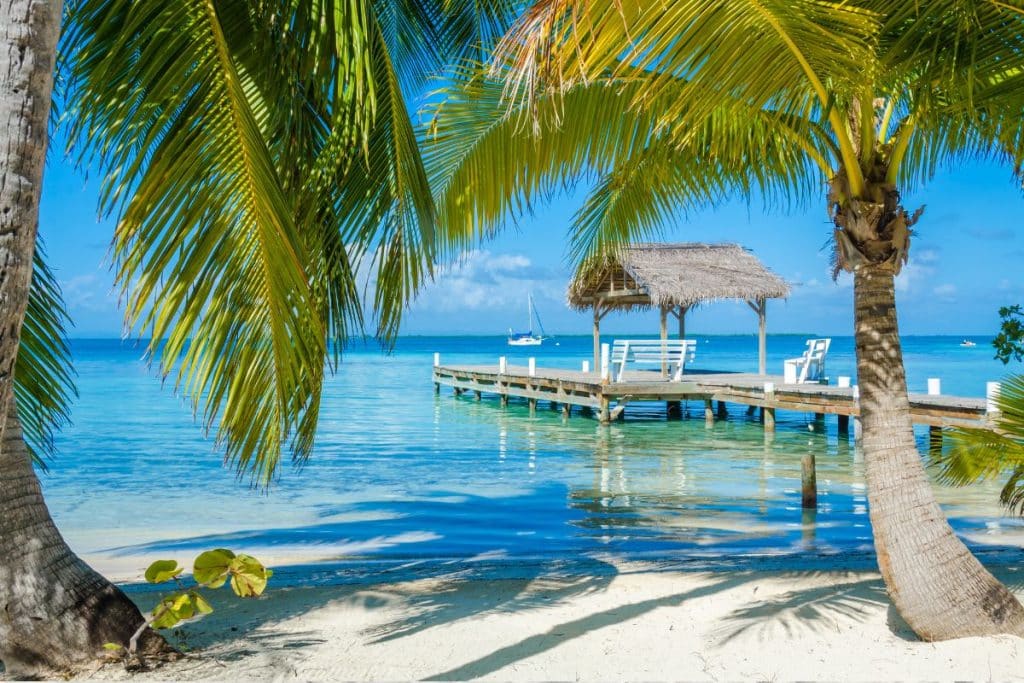
Belize has dropped all Covid-19 entry restrictions for international travelers. The move means that visitors no longer need to present proof of vaccination or a negative Covid-19 test taken shortly before departure to the Central American country.
Kevin Bernard, the minister of health and wellness for Belize, told reporters that “with the emergence of weaker variants of COVID-19 and with the global trend of restrictions being relaxed, the time has come to take the pressure off of our health systems,”
“We’ve reached a level where it’s now everyone’s personal responsibility to decide whether they want to be vaccinated or not.”
Cyprus
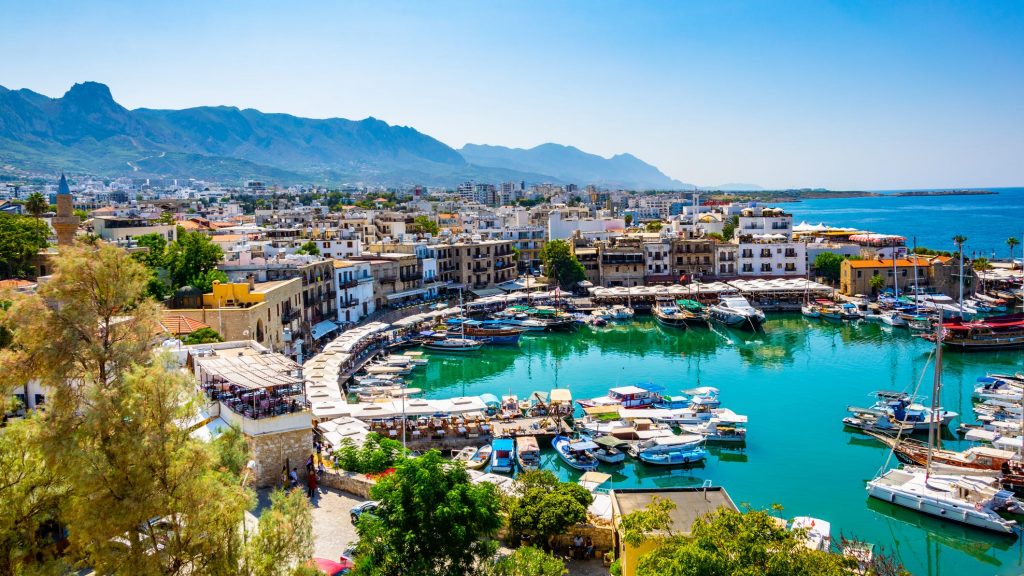
According to the Cypriot government on Friday, travelers to Cyprus will no longer have to present a valid COVID -19 vaccination or a recovery certificate, nor will they have to present a negative COVID -19 test from June 1 to enter the country.
The government has also decided to abolish the requirement to wear face masks in all indoor places in Cyprus from June 1, with the exception of hospitals, nursing homes and other indoor medical facilities.
Israel
As of Saturday, May 21, Israeli and foreign travelers will no longer be required to take a PCR test upon arrival at Ben Gurion Airport, according to the Ministry of Health.
Israeli and foreign travelers will also no longer have to present a negative test result before boarding a flight to Israel.
According to the Health Ministry, the restrictions were changed due to the drop in COVID -19 morbidity and apply to all land and sea crossings.
Travelers will still be required to complete a health declaration within 48 hours of the flight.
Latvia
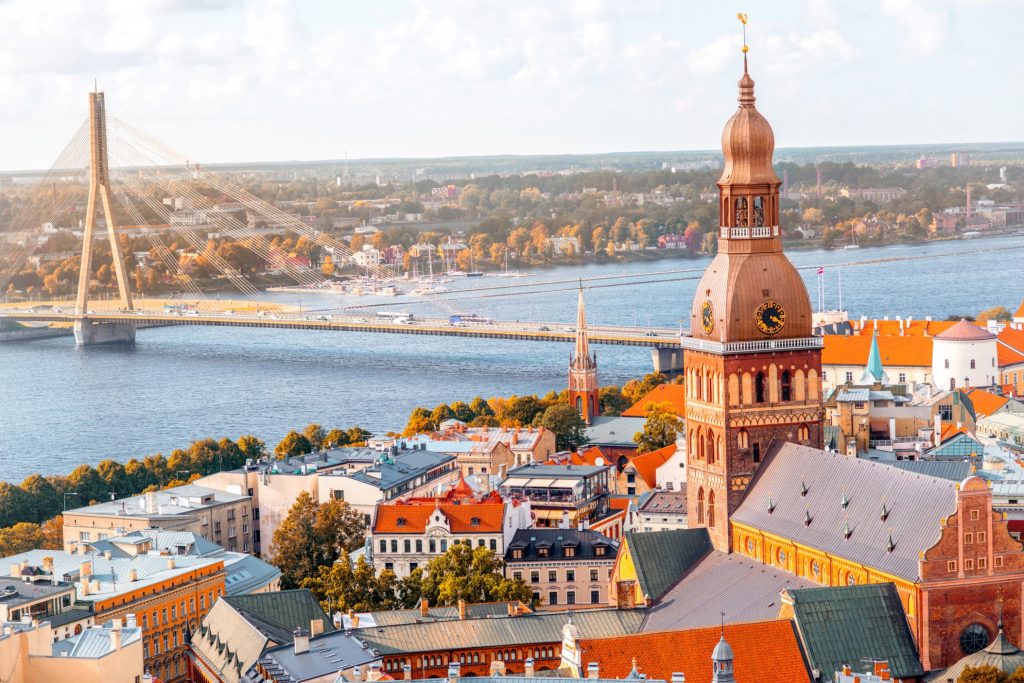
As of April 1, 2022, visitors to Latvia will no longer be required to provide a vaccination certificate, undergo testing or quarantine, or fill out the passenger locator form.
Grenada
Grenada has lifted all Covi-19 entry restrictions for vaccinated and unvaccinated travelers since May 1.
The decision means that travelers to the country no longer be required to present a Covid-19 test, proof of vaccination, or undergo quarantine.
“Conditions allow us to proceed with the suspension of the protection measures put in place from May 1st,” said the minister.
Bonaire
Visitors to Bonaire no longer need a negative PCR test or evidence of vaccination or recovery to enter the island.
Between 24 and 12 hours prior to departure, all international tourists will be asked to fill out a health declaration, form that can be found here.
The document must be digitally signed and sent to the authorities of Bonaire.
Slovakia
Slovakia is one of the most recent countries in Europe to remove all pandemic restrictions.
Travelers will no longer be required to take a Covid 19 test, fill out a registration form, or provide proof of vaccination before entering the country.
Czech Republic
The Czech Republic has also dropped all entry restrictions for overseas arrivals.
The new rules went into effect on April 9, according to the local news outlet Prague Morning.
Iceland
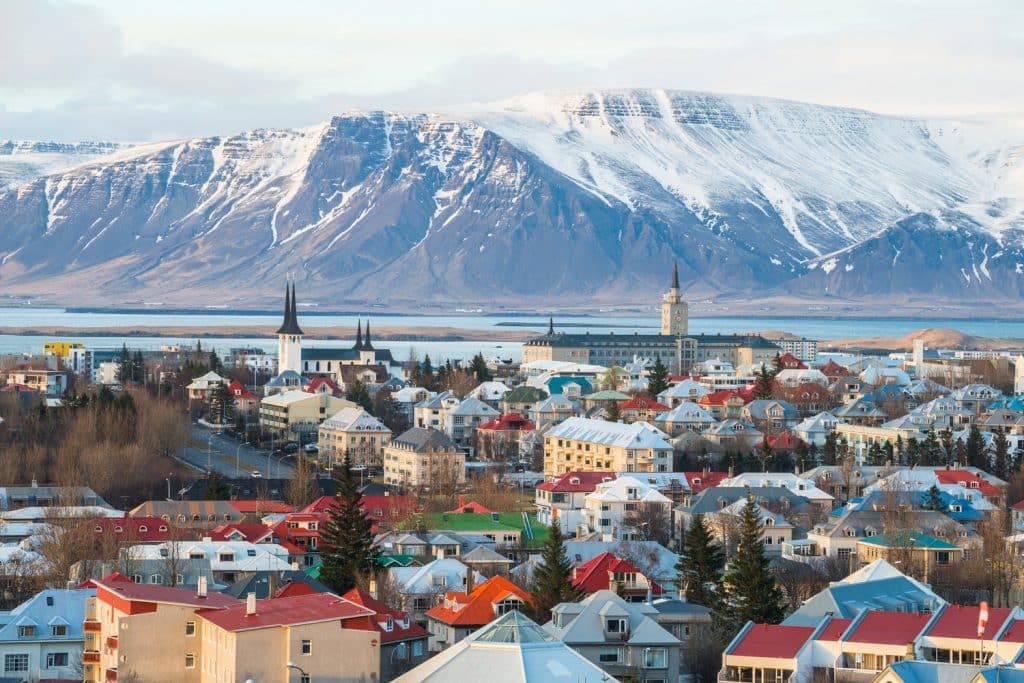
Reykjavik the capital city of Iceland.
Iceland has lifted all Covid-19 entry restrictions. Now anyone can enter Iceland, regardless of vaccination status. They have also eliminated all testing, quarantines, and online health forms for entry.
The mask requirement has also been abolished.
Saudi Arabia
Saudi Arabia has lifted most of its entry restrictions. Visitors no longer have to provide proof of vaccinations or tests or undergo quarantine.
Online health forms, proof of travel health insurance, and a contact tracing app are still required.
North Macedonia
Northern Macedonia has for the second time lifted all entry restrictions from April 21, 2022. Hopefully, the new entry policy will remain as they are.
Lithuania
Starting May 1, travelers will no longer face quarantines, proof of vaccination, recovery or have to present proof of a negative Covid-19 test to enter Lithuania.
Lithuania’s neighbors Latvia and Poland have also removed their entry requirements as well.
The mask mandate was removed in public transport.
Armenia

As of May 1, proof of vaccination, negative tests, or other entry requirements no longer apply when entering Armenia.
Kyrgyzstan
Kyrgyzstan is lifting all travel requirements as of May 1, 2022. Proof of vaccination or negative tests will no longer be required for entry, and the visa-on-arrival program has been reinstated.
Liechtenstein
Liechtenstein follows Switzerland’s border rules and therefore also lifted all entry requirements and travel rules as of May 1 to emulate its neighbor.
Kuwait

Kuwait has lifted all entry requirements as of May 1. Travelers no longer need to provide proof of vaccination or negative testing.
Serbia
Serbia lifted all border and entry rules on May 3, 2022. No tests or proof of vaccination are required for entry.
Gibraltar
Entry to Gibraltar is now free of restrictions
Chile

Chile is another South American country ready to drop testing and vaccination entry rules. From April 14 all travelers can enter without covid mandates but local restrictions still apply.
Greece
Health Minister Tanos Plevris announced in Delphi, where the VII Foro Economico is being held, that all visitors will be allowed to enter Greece without testing restrictions from May 1 until September regardless of their vaccination status.
“Conditions allow us to proceed with the suspension of the protection measures put in place from May 1st,” he said.
Mauritius
Beginning on July 1, 2022, there will be no longer be any requirements to enter the African island nation of Mauritius. Face masks and restrictions on public gatherings were also lifted, with the exception of hospitals and public transportation.
Tobago and Trinidad
As of July 1, 2022, Trinidad and Tobago will no longer have any entry requirements. Prior to the most recent need for a 48-hour test, T&T was one of the strictest countries throughout the whole pandemic.
Jamaica

Jamaica will drop pre-departure Covid-19 testing for all, vaccinated and unvaccinated visitors starting April 16.
“We’re optimistic that these will serve to increase the appeal of Jamaica as a premier destination and keep us moving toward a stronger recovery for the tourism sector and our economy as a whole,” said Edmund Bartlett, minister of tourism.
Aruba
As a Caribbean local media outlet reports, the Dutch Caribbean island of Aruba has lifted all pandemic-related entry requirements for visitors.
This means that travelers no longer need to provide proof of vaccination or a negative test to enter the country.
However, travelers must still complete an embarkation/disembarkation card before arriving in Aruba.
New Zealand
New Zealand lifted all COVID-entry restrictions on June 20.
This means that travelers to New Zealand are no longer required to take a COVID -19 test prior to arrival, nor are they required to complete the New Zealand Travelers’ Form.
Unvaccinated visitors are now allowed to transit through the country.
However, all travelers to New Zealand must be fully vaccinated against COVID -19, apply for a travel visa, and meet the post-entry testing requirements.
Travelers who exhibit symptoms of COVID -19 during travel now have two options to prove they do not have COVID -19: They can present a negative test result or a certificate from a physician explaining why it is unlikely they have the virus.
Argentina
Argentina is the latest country to drop Covid entry restrictions for travelers. Restrictions will be phased out within the next few days and weeks, announced the Argentinian government.
Curaçao

Beach in Curacao
The Curaçao Tourist Board (CTB) said in a statement that inbound passengers no longer need to show proof of a negative COVID -19 test or a vaccine certificate to enter this Caribbean island.
Authorities have also removed the night curfew, mask mandate and proof of vaccination for large-scale events.
“Globally, we are seeing a shift from pandemic to endemic, and while the safety of our travelers will always be a top priority, we’re thrilled to have adapted our entry requirements and measures to align with the evolving travel environment,” said Hugo Clarinda, CTB’s deputy CEO.
Poland
Poland has dropped all Covid-related entry requirements, including the requirement to wear a mask indoors and the need to self-isolate when infected with Covid-19.
Therefore, anyone entering Poland, whether from an EU or non-EU country, no longer needs to provide proof of COVID -19 – vaccination, recovery or test certificate to be granted entry.
Denmark
Those traveling to Denmark are no longer required to present a vaccination, recovery, or test certificate upon entry, regardless of the reason for the visit.
All travelers from the EU/Schengen area may also visit Denmark without restrictions. As of March 1, 2022, travelers from the EU/Schengen area may enter Denmark without having to present proof of a negative Covid-19 test.
Sweden
Overseas visitors to Sweden will no longer be subject to entry requirements as of April 1.
Furthermore, the Swedish government has announced that the ban on entry for travelers from outside the EU/EEA (European Economic Area) will not be extended.
Slovenia

Proof of vaccination or a negative Covid test is no longer required to enter Slovenia. Most services no longer require people to be RVT (recovered, vaccinated or tested).
This includes activities such as tourism and hospitality, trade fairs, cultural and sporting events, congresses, visits to public institutions such as museums and galleries, ski resorts, public transportation and other activities.
Grenada
Grenada said Tuesday that various restrictions under Quarantine COVID regulations will be lifted, making travel to this Caribbean country a lot easier.
All passengers traveling to Grenada will no longer be required to undergo Covid-19 testing, complete a health declaration form prior to or upon arrival, or undergo quarantine.
Mongolia
Mongolia has removed all Covid-19 restrictions. Negative Covid-19 PCR testing before and after arrival is no longer required for overseas tourists.
The Mongolian-Chinese border will be closed until further notice.
Montenegro
Montenegro removed all COVID -19 travel restrictions on March 10. International passengers no longer need to show proof of vaccination or a negative COVID -19 test upon arrival.
Moldova
Moldova has lifted all its Covid-19 entry restrictions. But, authorities have been compelled to shut the country’s airspace until at least April 25, due to the crisis in Ukraine.
The closest airport from which travelers can get a flight out is in Romania, 150 km from Chisinau.
England
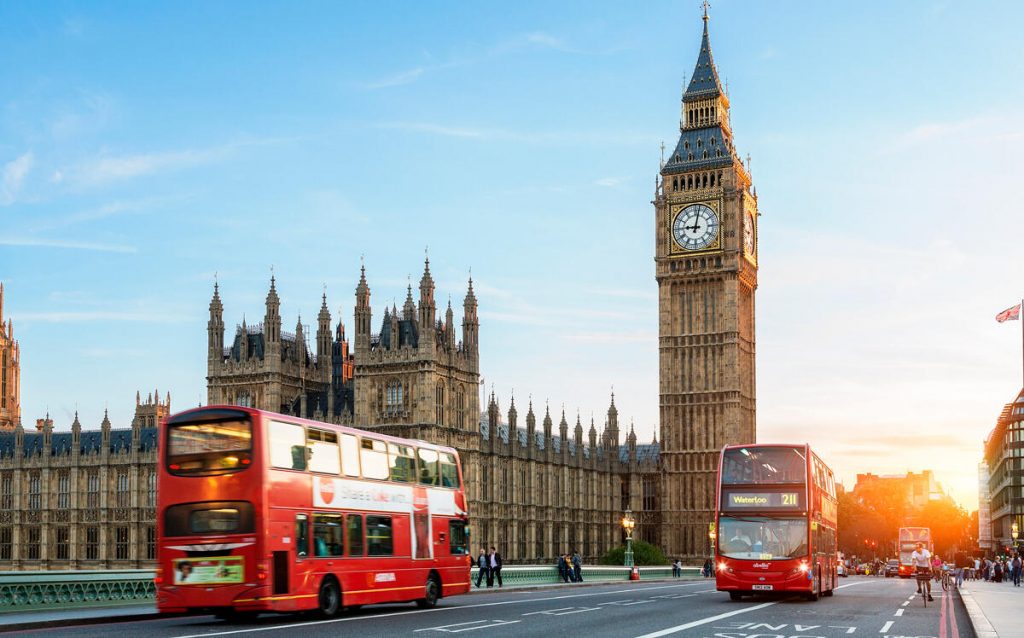
London
England, home to the greatest mix of iconic sights and all kinds of hidden gems, has abolished ALL entry restrictions for visitors regardless of their vaccination status.
“All remaining Covid travel measures, including the Passenger Locator Form and tests for all arrivals, will be stood down for travel to the UK from 4 am on 18 March,” tweeted, Transport Secretary, Grant Shapps.
That means travelers are no longer requested to present pre-departure or post-arrival Covid tests or quarantine.
Heathrow Airport has also removed the requirement to wear masks, and a number of airlines have followed suit.
Romania

Transylvania, Romania, Europe
Home to stunning snow-capped mountains, green woods, vineyards as well as Black Sea beaches, Romania is now open for tourism without any Covid-19 restrictions.
As of March 9, visitors will no longer require a Green Pass to enter the nation or patronize indoor establishments.
The obligation for unvaccinated tourists to submit a negative Covid-19 test before departure and after arrival has also been removed.
Visitors to Romania still need to complete the Passenger Locator Form (PLF), but it does not include any Covid-19-related questions.
Ireland
Those heading to the countless festivals in Ireland are no longer subject to Covid-19 entry restrictions.
“There are no post-arrival testing or quarantine requirements for travelers to Ireland. Travel carriers will not ask to check a PLF receipt prior to traveling to Ireland,” the Irish government said in a statement.
“Any individual that develops Covid-19 symptoms while in Ireland should follow the HSE (Health Service Executive) guidance in relation to isolation and undertaking antigen or PCR testing as appropriate,” the Irish government pointed out through a statement.”
Keep in mind that passengers visiting Northern Ireland must still adhere to all UK travel regulations.
Hungary

Hungary
Inbound travelers to Hungary no longer need to show proof of vaccination or recovery certificate to enter the country.
They are also exempted from submitting a negative Covid-19 test result prior to departure as pandemic restrictions have been removed.
On March 4, the government published decree No.77 of 2022 confirming that most Covid-19 measures established during the last couple of years are no longer in effect.
“It is possible to enter the territory of Hungary by public road, railway, water and air traffic – regardless of citizenship and protection against the coronavirus –, but other general conditions of entry (e.g. a valid travel document) must be provided.”
Jordan

Jordan, Petra
This amazing country, dubbed “an open-air museum,” is open for tourism and has removed pre-departure and post-arrival testing as well as proof of vaccination for foreign visitors, as of March 1.
Regardless of vaccination status, all travelers to Jordan must register on the Gateway2Jordan platform site and follow the Jordanian government’s guidelines.
Most visitors need a visa to enter Jordan. Click here for additional information on visa requirements.
Bahrain
This island nation has removed PCR testing and quarantine for all overseas visitors, regardless of vaccination status, as of Feb. 20.
Vaccinated visitors are eligible to obtain a ‘Vaccination Certification Card’ on arrival which allows them to use indoor public services while in the country.
To receive the card, travelers must provide a vaccination certificate with a QR code unless it was issued in the United Kingdom, the United States, the European Union, Switzerland, Canada, Australia, New Zealand, South Korea, Japan, Singapore, or Israel.
Even if Bahrain does not, some airlines may demand customers to be vaccinated. It is highly recommended to check with your airline before purchasing your tickets to Bahrain.
Switzerland
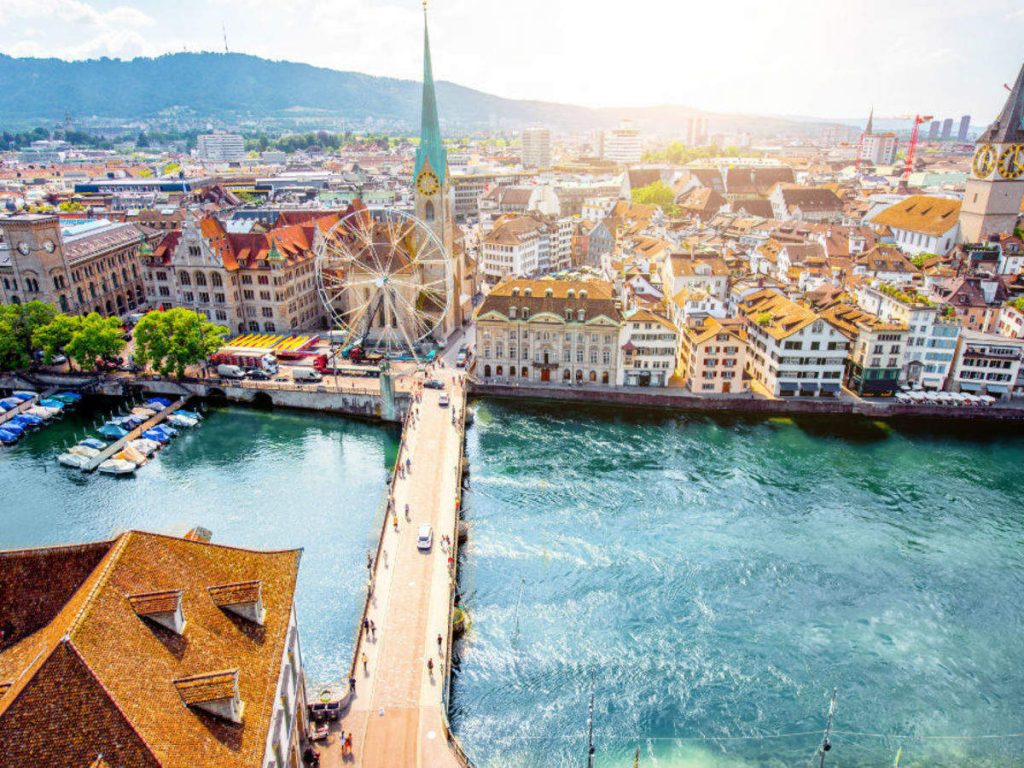
Switzerland removed all COVID-19 entry restrictions as the government no longer believes that a second wave of Omicron infections would overwhelm the healthcare system.
“Health-related measures for persons entering the country are to be lifted. It will no longer be necessary to provide proof of vaccination, recovery or a negative test or complete an entry form,” the Council announces.
Visitors still need to wear a face covering when taking public transport or while visiting healthcare facilities.
Travelers who test positive for COVID will be required to quarantine for five days.
Norway

Travelers no longer need to present a vaccine certificate or proof of a negative COVID-19 test to enter the country, said the Norwegian Prime Minister Jonas Gahr Støre.
The obligation to complete a digital registration form prior to arrival has also been removed.
“We can ease the measures because omicron does not cause as serious a disease as previous variants. Even though the infection is rising, the proportion who end up in hospital is low. We are well protected with the vaccine,” said Støre.
For the time being, travelers should be aware that testing rules for traveling to Svalbard remain in effect.
Costa Rica
[No test, No Quarantine, No Vaccine]
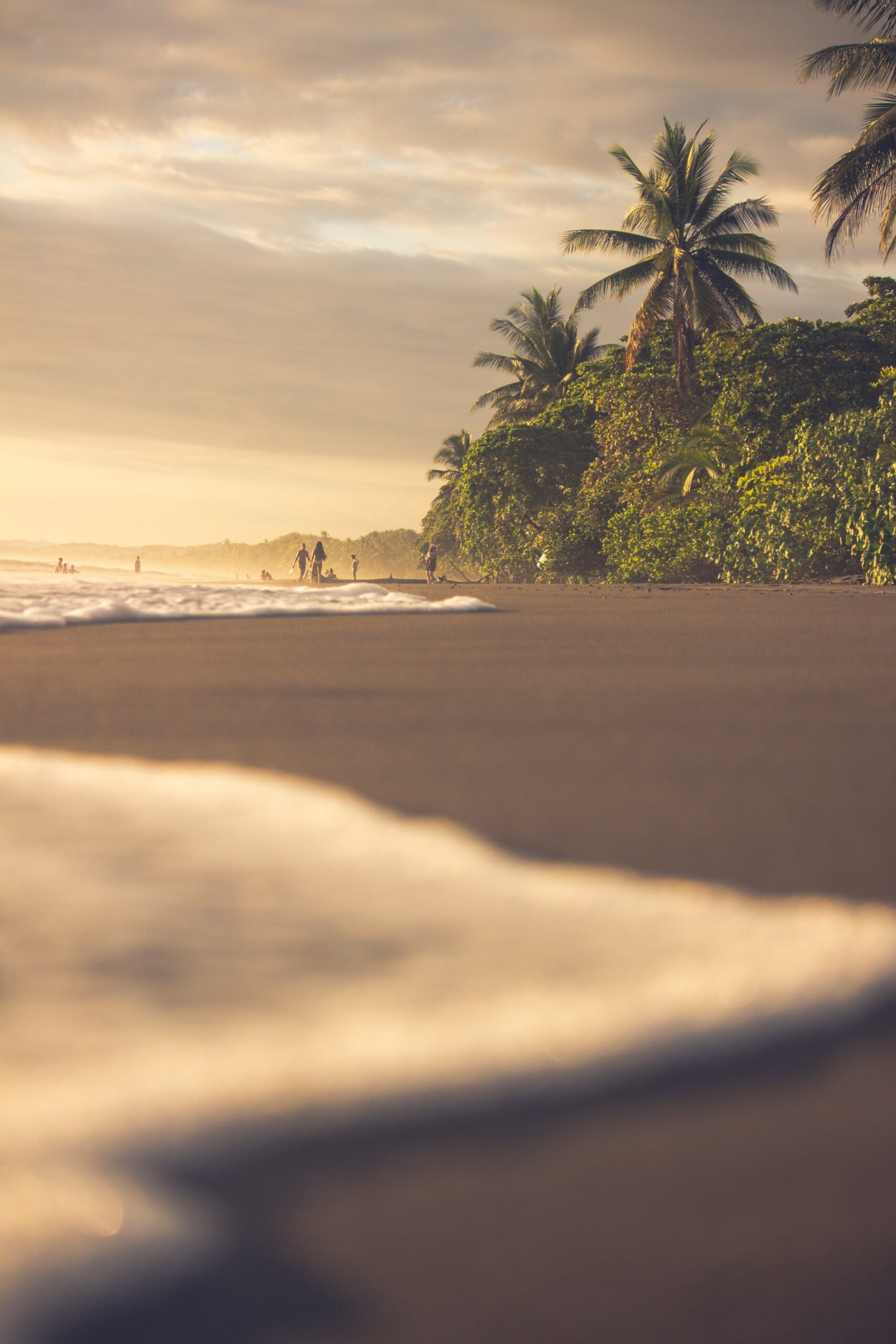
This Central American country has been open for tourism without restrictions since August 1, 2020.
Traveler no longer need to present a negative COVID-19 test . However, unvaccinated arrivals must present proof a medical insurance that covers medical treatment in the case of a COVID-19 infection in the amount of USD 50,000.
All visitors must also complete an online Health Pass 48 hours prior to travel to Costa Rica.
Mexico
[No test, No Quarantine, No Vaccine]
Mexico does not require a negative COVID-19 PCR test or quarantine for entry and all countries are welcome to visit.
The US Centers for Disease Control and Prevention has moved Mexico’s travel advisory rating from Level 3 (“high” risk for Covid) to Level 4 (“very high” risk).
Dominican Republic
[No test, No Quarantine, No Vaccine]
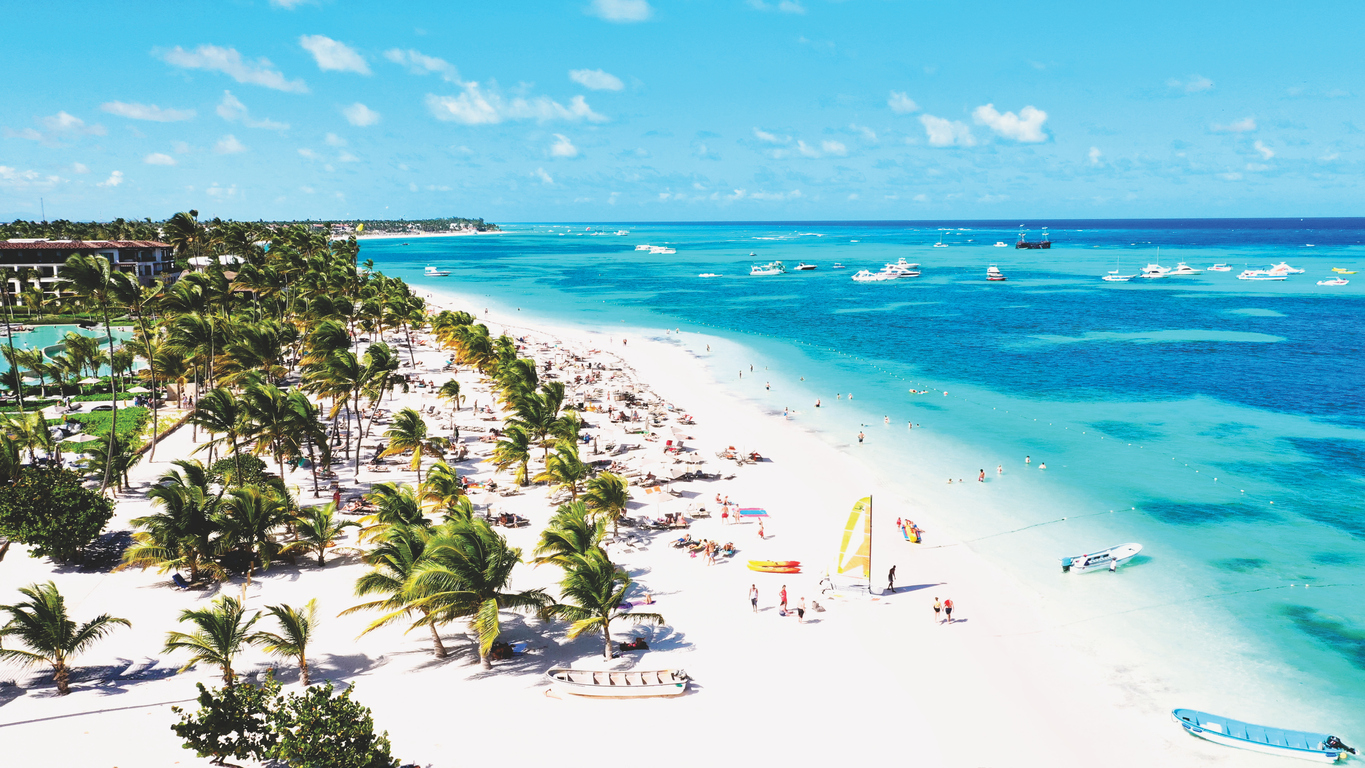
Aerial view of a beautiful Caribbean beach in Punta Cana, Dominican Republic
The Dominican Republic only requires its visitors to agree to random COVID-19 rapid tests upon arrival in case travelers feel unwell.
Visitors must be aware of the strictly enforced curfew that goes from 6 pm to 5 am (with a grace period for movement until 9 pm.)
El Salvador
[No test, No Quarantine, No Vaccine]
The Government of El Salvador lifted all COVID-19 related entry restrictions such as a negative COVID-19 test, proof of vaccination, or health insurance, on November 17, 2021.
To minimize issues at their departure airport, travelers should confirm with their airlines that they understand and have implemented the changes.
Croatia
[No test, No Quarantine, No vaccine]
Croatia removed all border crossing restrictions. This means that travelers from the US and other non-EU countries no longer need to present proof of a negative Covid-19-test or certificate or proof of vaccination for entry to Croatia.
Maldives
Water sport and beach lovers will no longer be required to submit a PCR Covid-19 test upon arrival.
Furthermore, the requirement to wear a facial covering in most indoor settings has been scrapped.
“Wearing masks is now optional, except in hospitals and health care centers, and should the COVID-19 positivity rate go above 20% in any island,” said Maldives’ president, Ibrahim Mohamed Solih.
Hungary

Budapest, Hungary
Hungary has ditched all domestic COVID-19 restrictions for locals and tourists. Although some health experts have expressed concerns about it, the administration has firmly expressed its rejection to reintroduce any mandatory COVID-19 measures.
For instance, wearing a face mask is not mandatory even in public transportation.
“[Our] services are a safe choice for everyday travel, as regularly disinfected vehicles -as several national and international studies have shown- people have a much lower risk of getting sick than in public spaces where people spend long periods of time,” said the Center for Budapest Transport (BKK).
Hungary visitors only need to present a PCR test if entering the country via air. Quarantine or proof of vaccination is not required.
Albania
Albania is one of the countries in the world that does not require a test, vaccine, or quarantine for people to visit it.
The new entry policy took effect on May 1.
Bulgaria
Bulgaria has reopened its doors to all visitors regardless of the vaccination status. Proof of recovery or of being fully vaccinated is no longer needed.
Sweden
Travelers entering Sweden no longer need to present the EU Digital COVID Certificate or a similar certificate demonstrating that they have been vaccinated against COVID-19, tested negative within 72 hours of arrival, or recovered from COVID-19 in the previous six months.
Portugal

Portugal has removed all Covid entry requirements for travelers, both vaccinated and not.
Fully jabbed arrivals no longer need to provide proof of vaccination as of July 1, and the requirement for testing has also been eliminated for individuals who have not received a vaccine.
“Under this new regulation, airlines and passengers are no longer subject to the restrictive measures that applied to air transport in the fight against the pandemic caused by the Sars-CoV-2 virus, which lasted until June 30, 2022,” it says.
South Africa
The South African government has decided to lift all remaining Covid restrictions after the Presidential Coordinating Council and Cabinet decided they had served their purpose and were no longer needed.
For travelers, the most significant change is the lifting of vaccination and testing requirements for entry into South Africa.
“Today is a very historic day as we have reached a turning point since the outbreak of Covid-19 in the world and in the country,” Health Minister Dr. Joe Phaahla said in an official statement.
Italy
Travelers to Italy no longer need to present proof of vaccination or test negative for Covid-19 to be permitted entry.
“From June 1st stop green pass for entry into Italy. The ordinance of the Minister of Health which provides for the Green Certification Covid-19 (green pass) to enter Italy expires on May 31. The measure will not be extended,” the statement of the Ministry reads.
Georgia
According to the decree of the Government of Georgia No. 322 “On Approving the Rules for Isolation and Quarantine” dated May 23, 2020., from June 15, 2022, all Georgian nationals and international visitors no longer have to present proof of a Covid-19 vaccine or a negative test to enter the country.
Australia
Visitors to this country no longer need to submit a Digital Passenger Declaration or Maritime Travel Declaration when entering Australia.
They do not have to declare or provide proof of their vaccination status as of 12:01 am AEST on July 6, 2022, say the government.
“This is great news for families coming home from school holidays who now don’t need to use the DPD [digital passenger declaration],” O’Neil said.
Countries With Easy Entry Restrictions
Most countries are reopening their borders for international travel but entry restrictions vary from testing or no testing, quarantine or no quarantine, and even vaccination status. Find out which countries are open with only 1 or 2 entry requirements.
Colombia
[No test, but vaccination card]
Effective Dec. 14, all international arrivals 18 years and over must present a vaccine certificate to be allowed entry.
When passing through Colombian Immigration, travelers should be prepared to provide an original physical vaccination card or digital certificate.
After almost 2 years without entry restrictions and almost no restrictions, Colombia has started to request everyone to present a COVID-19 Vaccine Passport to access stadiums, cultural events, bars, and restaurants from Nov. 16.
The country has been ranked as “Level 4: COVID-19 Very high risk of transmission” by the CDC.
The United States of America

Central Park, New York
The United States reopened for tourism on November 8.
A negative COVID-19 test taken within 24 hours before departure and proof of vaccination is all tourists need to be permitted entry.
The best part is the U.S. accepts multiple types of tests, from (RT-PCR) to (RT-LAMP), (TMA), (NEAR), and (HDA) tests. But if it sounds too complicated, a self-test a.k.a home test is also enough!
Check the specific requirements for home tests.
The US has barred travel from multiple African nations, including Botswana, Zimbabwe, Namibia, Lesotho, Eswatini, Mozambique and Malawi.
Tanzania

Serengeti National Park, Tanzania
One negative COVID-19 test is all travelers need to be allowed to visit Tanzania and its Serengeti National Park.
The government only requires visitors to present a COVID test taken within 72 hours before arrival and to fill out an online Health Surveillance Form within 24 hours before entering the country.
Once visitors complete the form they will receive a Unique Health Code (UHC), which they must present to health officials at the airport.
No quarantine is needed!
Montenegro
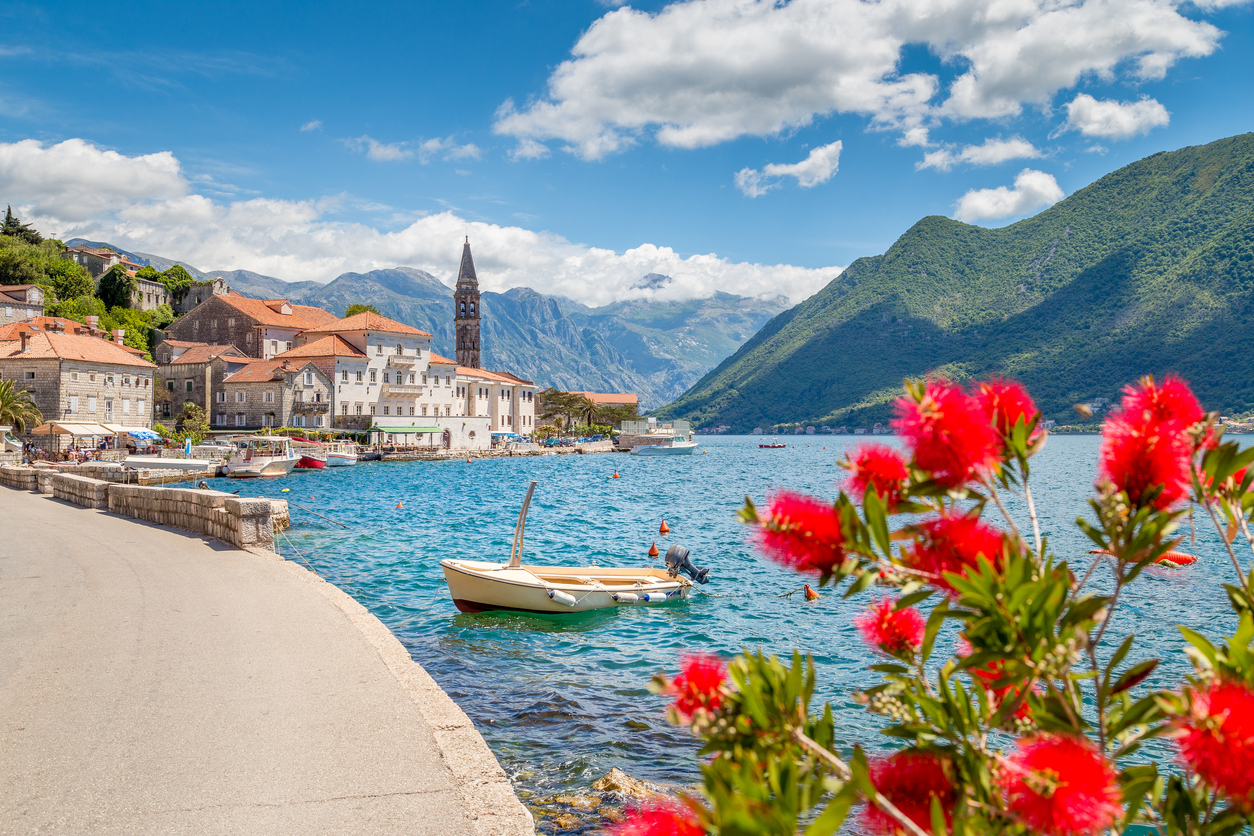
For the time being, visitors will need to present proof of being fully vaccinated issued by a registered health care institution. The last dose must not be more than six months prior to entry.
A negative PCR test not older than 72 hours or a positive PCR or a rapid antigen test older than 10 days, and not older than 6 months also is also needed.
Panama
Visitors from all countries are welcome to visit Panama without quarantine or vaccination restrictions. To be permitted entry, travelers only need to present either a negative COVID-19 PCR test or an antigen test, which is certainly cheaper and easier to get.
Visitors can also arrive in Panama without a test and take one at the airport. This is a convenient option but it’s not very recommended because in case they tested positive for COVID-19 they would need to quarantine.
Also, all visitors must complete and sign an electronic sworn affidavit prior to check-in. But that would be all.
Egypt

Credit: Amazon
Tourists are allowed entry only by presenting a PCR or a serology COVID-19 test. Proof of vaccination is not required and there’s no mandatory quarantine.
Long-haul travelers from Japan, China, Thailand, United States, South America, Canada, London Heathrow, Paris, and Frankfurt are permitted to bring a test certificate performed 96 hours prior to their flight departure.
People traveling to Sharm El Sheikh don’t even need to arrive with a PCR test. They can take it upon arrival.
Egypt has also imposed travel bans on Southern African nations.
Ecuador

Ecuador is open to most visitors and only requires a PCR test taken 3 days prior to arrival to allow them in.
Also, visitors who have received both doses of a COVID-19 vaccine 14 days prior to the flight date can enter the country without having to present the PCR test.
Galapagos
The internationally celebrated islands reopened for tourism on July 1.
Commercial flights resumed operations on August 3. To enter the islands passengers will be requested to bring either a PCR test or proof of vaccination.
Denmark
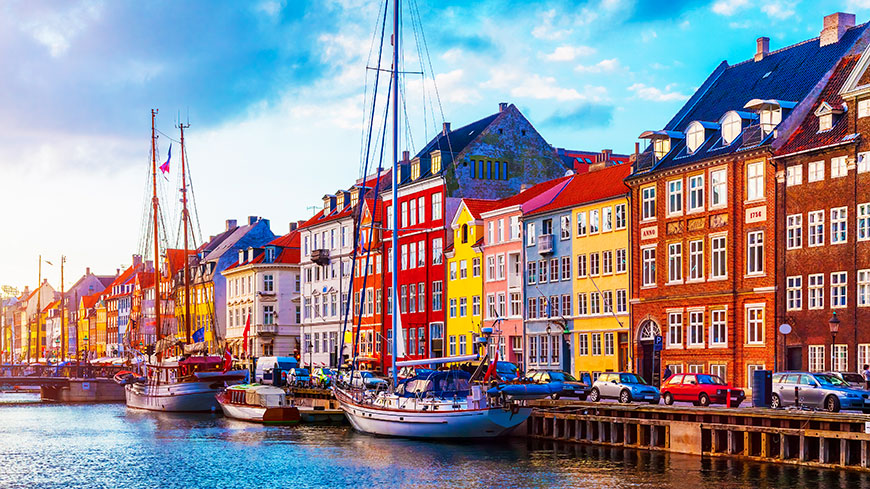
Starting Feb. 8, 2022, all COVID related entry restrictions will be lifted when entering from another EU/EEA country + Switzerland.
The rest of the world will have to wait until Mar. 31, 2022, to benefit from the same policy.
Spain

Barcelona, Spain – Photo, CNN
Fully vaccinated travelers are welcome to Spain without quarantine restrictions. This includes not only EU visitors but also Americans and even some South American countries.
The Spanish Government has banned unvaccinated UK British tourists. The new regulation applies to all tourists excluding children under the age of 12 years old.
All arrivals regardless of their nationality or age must complete a Health Control Form to obtain a QR code generated through the Spain Travel Health portal. It will be needed to board aircraft and to pass health controls on arrival in Spain.
Most Spanish “Comunidades Autómas” or states now request people to bear a COVID-19 Vaccine Passport to access restaurants, bars, and similar venues.

Vinicunca, the 7-color mountain, Peru
From Machu Picchu to the Inca Trail to one of the most luxurious train trips in the world, Peru is open for tourism and has dropped most of its entry COVID-19 restrictions.
To be granted access, foreign tourists 12 years of age or older are required to present either proof of vaccination or a negative PCR test. The quarantine upon arrival has been lifted.
Everyone should also fill out an affidavit of health, and that’s all, you’re in.
Countries and Places Dropping All Covid-19 Domestic Restrictions
Those eligible to visit these countries or territories will be shocked to notice how life looks quite similar to pre-pandemic times. Check them out!
California, USA

Yosemite National Park, California
With one of the nation’s highest vaccination rates and lowest case rates, California is open to welcome visitors.
The state scrapped the color-coded tier system that restricted limited capacity for nightclubs, bars, restaurants, and other venues.
Visitors can now enjoy temperatures of around 70℉ wherever they go without most of the limiting Covid-19 restrictions.
The state’s mask mandate as well as the social distancing restrictions have been lifted for vaccinated visitors, allowing most businesses to resume normal outdoor and indoor activities.
Officials in Los Angeles and the Bay Area are currently discussing lifting the rest of the Covid restrictions as transmission in their regions plummeted.
Florida, U.S.
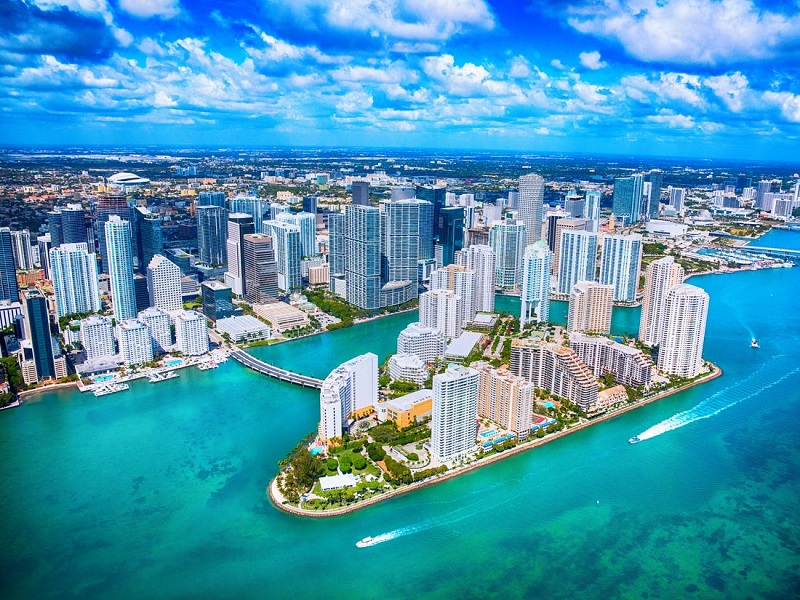
The United States is not only listed here as a country with easy entry requirements but also it has states the size of European countries where Covid-19 restrictions virtually do not exist or are even forbidden.
In Florida, for instance, people can freely walk around or enjoy inside establishments without wearing a mask or keeping social distancing. This is not only permitted but protected by Gov. DeSantis’s administration.
What Vaccinations Do I Need for Africa in 2022?
When your Africa safari is booked and confirmed, you’ll likely experience a surge of emotions, ranging from the excitement of anticipating a new adventure to the thrill of fulfilling a dream and, perhaps, a tiny tingle of anxiety about possible health concerns (often fuelled by friends or family who have never travelled to Africa).
The good news is, with sound medical advice from your doctor or travel clinic specialist plus up-to-date vaccinations and good, old-fashioned common sense, you are very unlikely to have any serious health concerns. Ironically, the riskiest part of any journey in terms of your health is likely to be the long-haul flight.
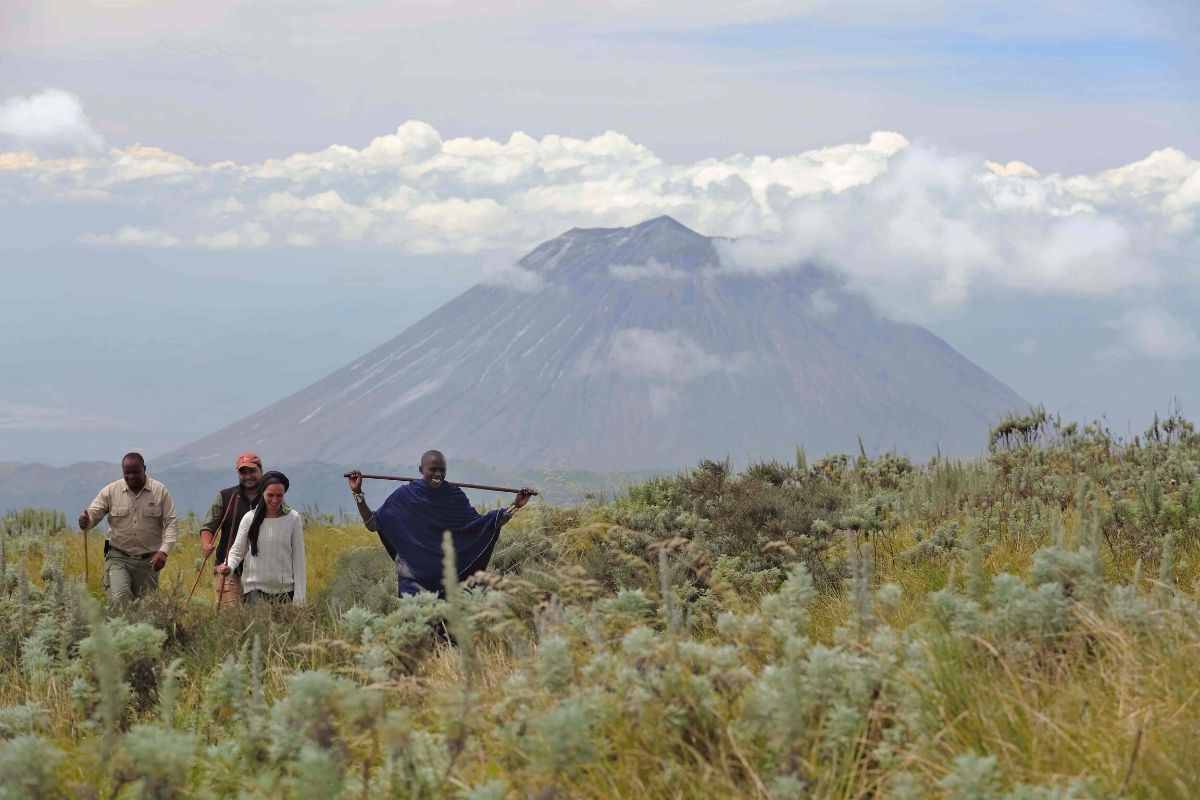
Before you leave, visit your doctor
We’re Africa travel specialists, not medical experts. We recommend that you visit your doctor well in advance of your safari adventure to discuss any health concerns you might have.
The COVID-19 Vaccine & Travel to Africa
Although the coronavirus-related entry requirements vary from country to country, some commercial airlines that fly to and within Africa require that passengers produce a negative COVID-19 PCR test that has been conducted within 72 hours of their departure. Please ensure you are acquainted with the COVID-19 protocols of the airline you are travelling with.
With travel restrictions and COVID-19 protocols are easing by the minute, more and more African destinations no longer require fully vaccinated visitors to undergo PCR testing prior to departure or on arrival. You can browse our entry requirements tracker to identify the exact requirements you will need to fulfil when travelling to Africa.
And if you’d like to know what it’s been like to travel to Africa during the pandemic, you can read what our our clients had to say about their recent safari experiences.
Find out more about how to travel safely in Africa, the best destinations to visit and the top places to get away from the crowds:
Africa Travel Tips: How to Travel Safely
5 Best Places to Go on Safari in 2022
All to Yourself: The Best Exclusive-use Luxury Properties
Routine vaccinations
Some diseases that have been made rare in your home country due to routine vaccinations may be far more common in the developing world. As such, it’s recommended that you visit your health care provider four to six weeks before you travel to ensure that you are up to date with the following routine vaccinations:
- Flu
- MMR – measles, mumps and rubella (German measles)
- Polio
- Hepatitis A & B
- DPT – diphtheria, pertussis (whooping cough) and tetanus
Important: It’s essential that you be in optimum health if you’re trekking to see gorillas, as they are hyper vulnerable to human diseases. A common human cold can kill a gorilla, so you will not be allowed to join the trek if you have even the slightest symptoms of illness. Trek slots are non-refundable and non-transferrable, so look after yourself and nip even the smallest health issue in the bud.
Yellow fever vaccination
Yellow fever is spread by a species of mosquito that is common in the ‘yellow fever belt’, which stretches across parts of Africa and South America. It’s easily prevented with a simple and highly effective vaccination that’s routinely available from travel clinics.

You must have the vaccination at least 10 days before you plan on entering a yellow fever area. This is because it takes a few days before you are effectively protected and you may experience flu-like symptoms, which are unpleasant on a long-haul flight. Once you’ve had the shot, the travel clinic will issue you with an International Certificate of Vaccination or Prophylaxis (IVCP) that proves you’ve been inoculated.
Important: Only a travel clinic can issue a yellow fever certificate.
The table below provides a short summary of the yellow fever vaccination requirements in the countries you might travel to with us. Although we try our best to keep this information up to date, please consult with your doctor or health care practitioner before you travel, as they will be able to give you the best advice about yellow fever vaccinations.
| Vaccination is an entry requirement | Vaccination required if you’ve been to a country in the yellow fever belt |
| Republic of the Congo | Botswana |
| Uganda | Madagascar |
| Rwanda | |
| Tanzania | |
| Kenya | |
| Namibia | |
| Seychelles | |
| South Africa | |
| Mozambique | |
| Zimbabwe | |
| Zambia |
Malaria prevention
As it’s spread by disease-carrying females of the species, the risk of contracting malaria is highest when and where mosquitoes are prolific; particularly during the hot and humid summer months in tropical regions.
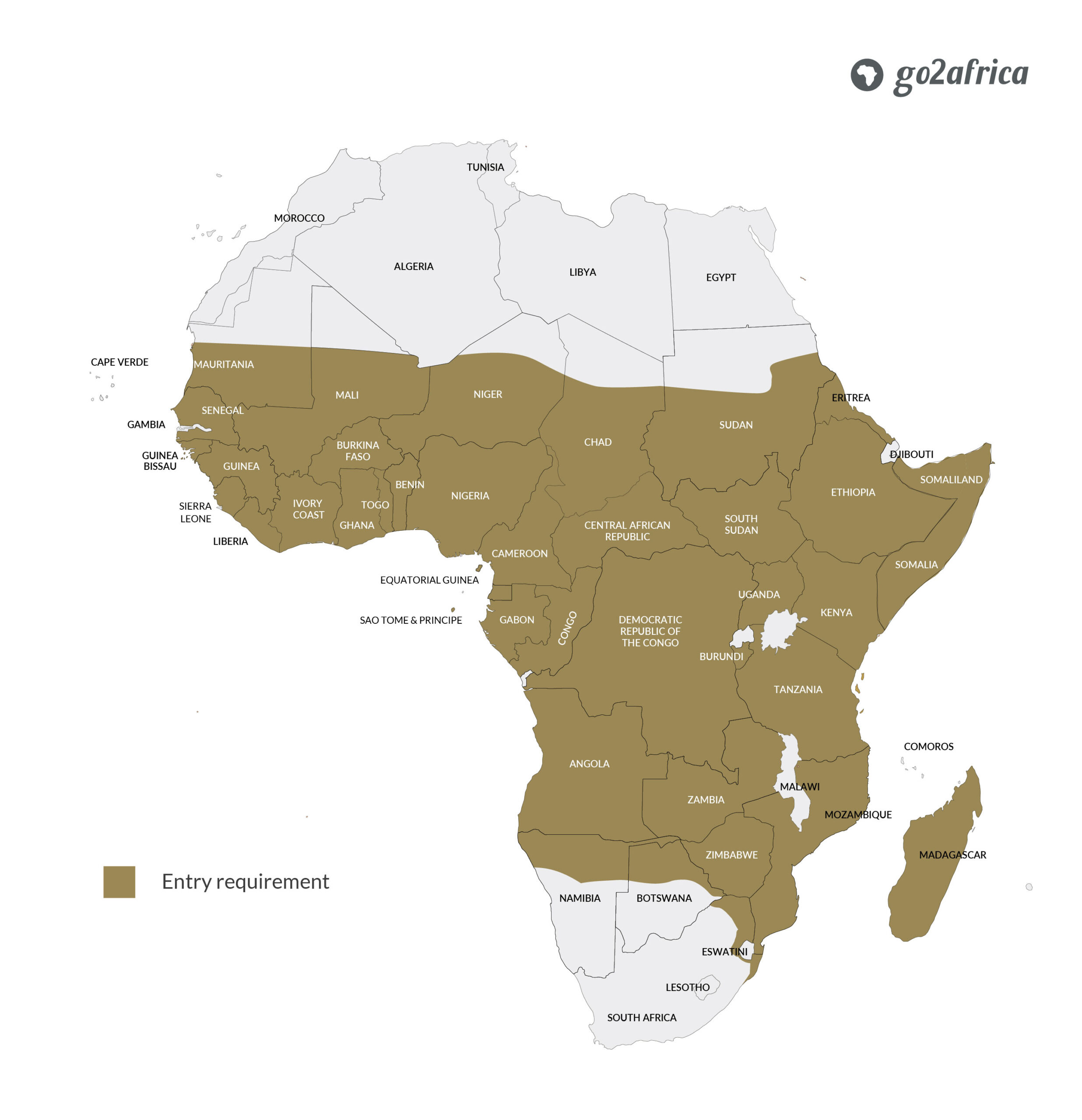
Malaria is one of the most common diseases in Africa, but is easily preventable and treatable with antimalarial medication. Visit your doctor to get advice about whether you should take antimalarial prophylactics as soon as you know when and where you’ll be travelling.
Adhere to the prescribed schedule of your antimalarial prophylactics to ensure that they work as planned. If you experience any uncomfortable or unexpected side effects while you’re on safari, let your guide or camp manager know.
Important: Let your doctor know if you’re planning on scuba diving after you’ve visited a malaria area, as this could affect the type of antimalarial they can prescribe.
You can take further preventative measures, such as applying insect repellent to any exposed skin every time you shower or change clothes, covering your skin from neck to toe with light-coloured clothing at night, keeping your tent or room doors closed and your mosquito net over your bed, and using a quality citronella soap.
You should seek immediate medical attention if you exhibit a fever and flu-like symptoms, including chills, headache, muscle aches and fatigue, within three months of your departure from the malaria area. Although it can be deadly, many people survive malaria if they seek medical attention as soon as they have symptoms.
If you decide you don’t want to travel in a malaria area, there are plenty of great malaria-free safaris to choose from.
General health tips when travelling to Africa
- Visit your GP well ahead of your departure to discuss any health issues you may have.
- Ensure that you have comprehensive travel health insurance. If your safari adventure will take you to remote parts of Africa, it’s essential that you have adequate cover to ensure you can be evacuated to the nearest major hospital and repatriated to your home country.
- Try to stay as healthy and fit as you can before you depart – you don’t want to start your vacation fighting off a cold or flu. It might be worth considering a flu shot in good time before your departure.
- Take multivitamins or immune boosters and pack some in your hand luggage to take along on the plane to avoid the dreaded ‘flight flu’.
- Stock up on enough of all your prescription drugs before you leave. Be sure to bring copies of your doctors’ scripts and keep scheduled medication in its original packaging. Ask your doctor to supply the generic or alternative names for your medications in case you need seek medical attention while in Africa.
- Consider bringing spare contact lenses, asthma pumps, diabetes monitors and any over-the-counter medication you use regularly (such as treatment for migraines, upset stomach or allergies) – it’s always comforting to have the exact medicine you’re used to taking, if you need it.
- Be sure to inform your Africa Safari Expertas early as possible if you require special medical attention (such as a gluten-free menu for someone with coeliac disease) or special facilities (such as a wheelchair-friendly environment).
- Ensure that all your and your children’s routine vaccinations, such as MMR (measles-mumps-rubella), polio, hepatitis and DPT (diphtheria-pertussis-tetanus), are up to date.
- Always heed your doctor’s advice, even if it’s disappointing – like not being able to scuba dive off Africa’s Indian Ocean islands when you are pregnant (you can still snorkel in the magnificently clear, warm water, so all is not lost).
- If you’re not feeling well at any stage during your safari adventure, let your guide or camp manager know.
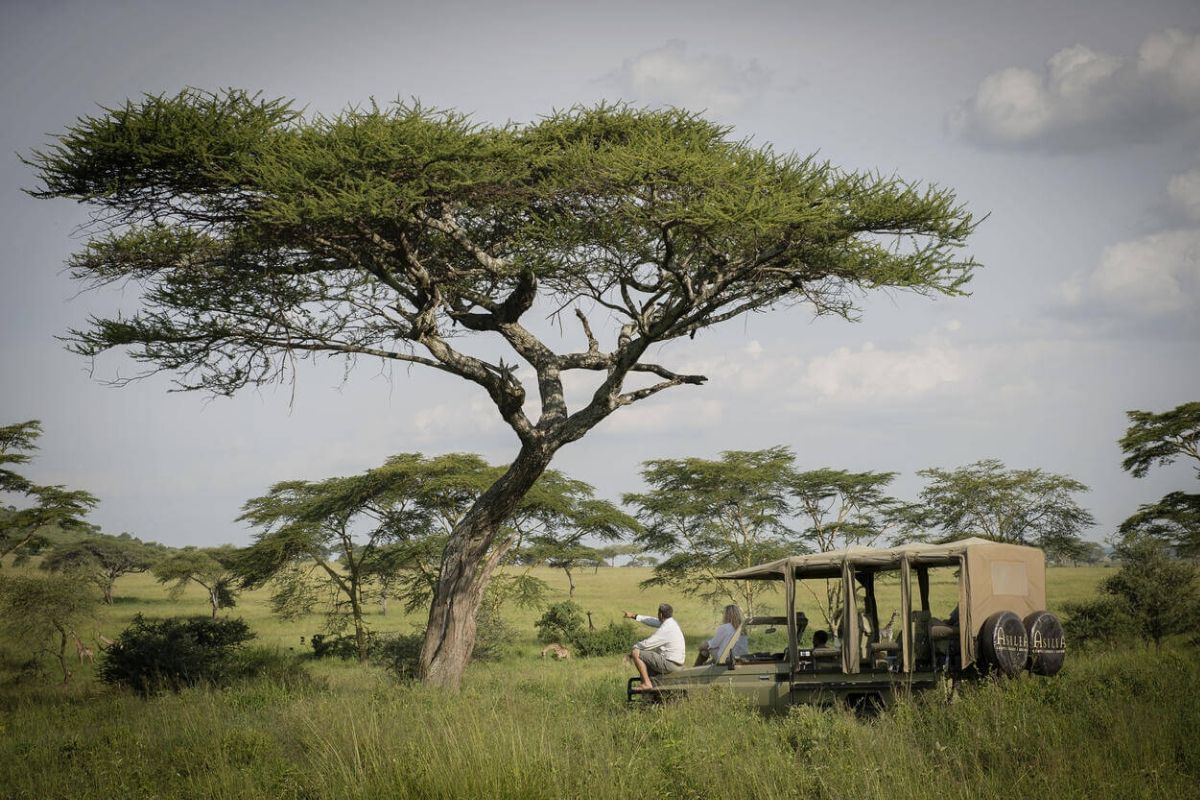
Visiting Africa is a thrilling adventure – one you want to remember for all the right reasons. Even if you’re in perfect health, it’s important to chat to your health care practitioner before you travel to ensure you get health advice that’s specific to you and your medical history. Being a well-informed and well-prepared traveller will mean that you’ll enjoy complete peace of mind and the freedom to fully immerse yourself in your safari vacation.
Source https://lloydspharmacy.com/blogs/travel/vaccinations-for-south-africa
Source https://www.travelinglifestyle.net/countries-without-covid-travel-restrictions-no-test-no-quarantine/
Source https://www.go2africa.com/african-travel-blog/vaccinations-need-africa